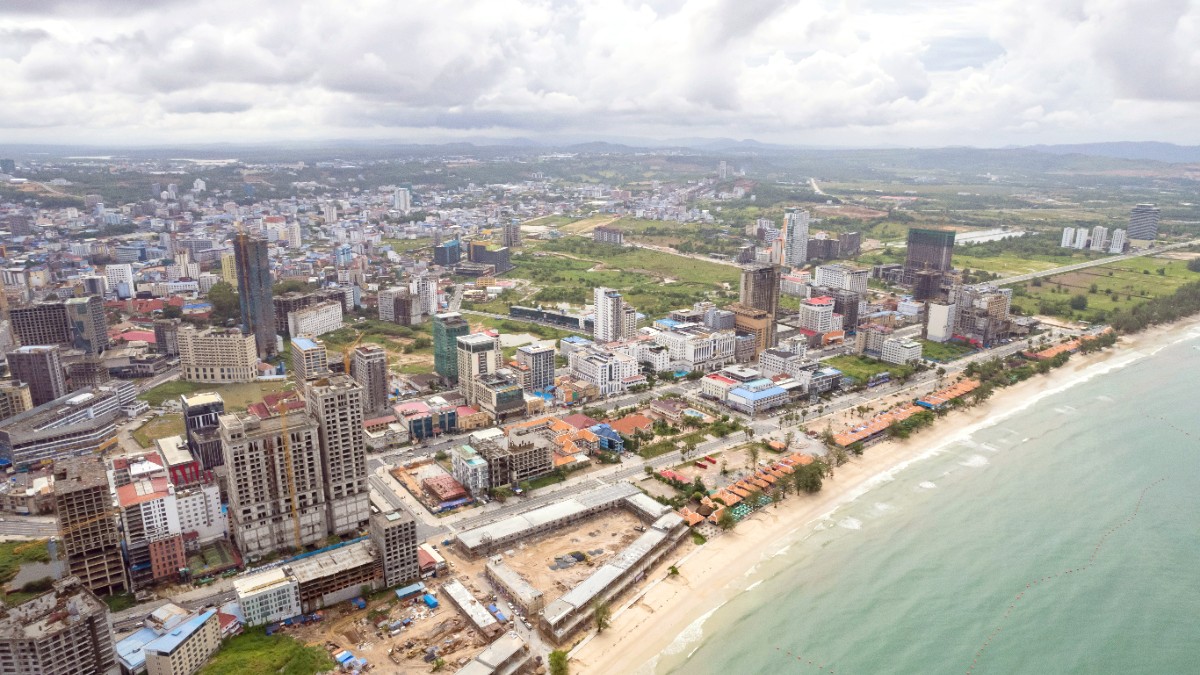
South Coast, Cambodia
Climate patterns throughout the year:
Dry Season (November to May): This period has warm to hot temperatures, lower humidity, and minimal rainfall. Temperatures typically range from 25°C to 32°C (77°F to 90°F). March to May can be very hot, with temperatures sometimes over 35°C (95°F). Clear skies and calm seas are common, ideal for beach activities.
Wet Season (June to October): This season brings high humidity and considerable rainfall. Rain often arrives in heavy but short bursts, typically in the afternoon. Temperatures remain warm, from 24°C to 30°C (75°F to 86°F). September and October are usually the wettest months. The landscape becomes lush and green.
Prepare your visa and entry documents before your trip to Cambodia. Different visa types fit various travel purposes and nationalities.
Visa Types: * Tourist Visa (Type T): 30 days, single entry. Extendable once for 30 additional days. * Ordinary Visa (Type E): 30 days, single entry. Extendable multiple times for 1, 3, 6, or 12 months, fitting longer stays or work considerations.
Choose what suits you.
Apply online via the official Ministry of Foreign Affairs and International Cooperation website: Evisa.gov.kh. Processing typically takes three business days. Print two copies for entry.
Available at international airports (Phnom Penh, Siem Reap, Sihanoukville) and major land border crossings. One may also apply in advance at Cambodian Embassies/Consulates in your home country.
Gather before travel.
Passport validity must be at least six months beyond your intended entry. One recent 4cm x 6cm (or 2-inch x 2-inch) passport-sized photograph with a white background. Digital photo for e-Visa.
Complete visa application forms. Immigration officers occasionally request return/onward tickets but not always strictly for tourist visas. Proof of funds is rarely asked, but access to money is wise.
What to expect.
Tourist Visa Fee: Around US$30-35 (subject to change). An e-Visa typically costs US$30 plus an US$6 processing fee. US dollars are the preferred currency for Visa on Arrival.
At arrival, present your passport, visa (or completed VoA application), and arrival/departure card. Fingerprints and a photo recording may occur. Special permits for standard tourist activities are not typical. Ream National Park may have an entry fee or guide fee. No specific health entry requirements at this time; check advisories.
The Cambodian Riel (KHR) is official, but the US Dollar (USD) is widely accepted and often preferred for most transactions, especially larger ones. KHR finds use for smaller purchases and change when paying with USD. The exchange rate is roughly 4,000 KHR to 1 USD. ATMs are common in Sihanoukville, mostly dispensing US Dollars, with typical fees of US$4-5 per transaction. Larger hotels, resorts, and some upscale restaurants accept credit cards, but cash (USD) is necessary for smaller vendors, street food, and local transport. Money changers exist, but ATM withdrawals are generally more convenient. Bring clean, undamaged US dollar bills, as vendors may refuse torn or marked notes.
Tipping is not mandatory in Cambodia but finds increasing appreciation, especially in tourist areas. In mid-range to upscale restaurants, a 10% tip for good service is fitting. In local eateries, simply rounding up the bill is common. For bellhops or housekeepers, US$1-2 is a kind gesture. For tour guides, US$5-10 per person per day is a consideration, and US$2-5 for drivers, based on service and duration. For a massage, US$2-5 is a tip.
US$25 - US$45 per day (hostel dorm, street food, tuk-tuks).
US$50 - US$100 per day (mid-range hotel, local restaurants, ride-hailing apps).
US$120+ per day (boutique hotel/resort, fine dining, private transport).
US$5-200+ (from hostel to luxury resort).
US$2-30+ (from street food to fine dining).
Health and personal safety during your Sihanoukville travels are a top priority. Safeguard your well-being, and understand local safety situations.
Consult a travel health professional 4-6 weeks before your trip for advice. Keep routine vaccinations current (MMR, DTP, Polio, Varicella).
Tap water is not potable. Drink only bottled or purified water. Avoid ice unless you confirm filtered water use. Frequent hand washing is a good habit. For food safety, select stalls with high customer turnover, freshly cooked items, and visible hygiene. Avoid raw vegetables rinsed in tap water.
Do not display large amounts of cash or valuables. Use hotel safes for your valuables. Be aware of your surroundings, especially after dark. Avoid walking alone at night. For flight disruptions, AirHelp assists with compensation claims.
Prepare your visa well before your Cambodia trip. Services like IVisa and VisaHQ can assist with your application.
At least six months validity beyond entry date.
One recent 4x6cm photo (digital for e-Visa).
Complete the visa application form provided at entry points or online.
Tourist Visa (Type T): ~US$30-35
Valid for 30 days, single entry. Extendable once for an additional 30 days. E-Visa typically costs US$30 plus an US$6 processing fee. US dollars are preferred for Visa on Arrival.
Ordinary Visa (Type E) also exists for longer stays, with multiple extension possibilities. Check official sources for current fees and documentation before applying.
Always confirm details with official sources as regulations may change.
Consider anti-theft bags and travel security products from Pacsafe for valuables.
Carry a basic first aid kit. For comprehensive options, see Adventure Medical Kits.
For safe drinking water, LifeStraw products are consumer-friendly options.
Flight delays or cancellations can affect travel plans. Knowing your passenger rights aids navigating such situations.
Comprehensive travel insurance is a strong suggestion. Options cater to various traveler types.
World Nomads provides travel insurance for adventurous journeys, covering many activities.
SafetyWing designs insurance for digital nomads and remote teams, focusing on flexible, long-term coverage.
Insubuy offers medical and travel-related coverage for foreigners visiting the United States, including fixed commission for affiliates.